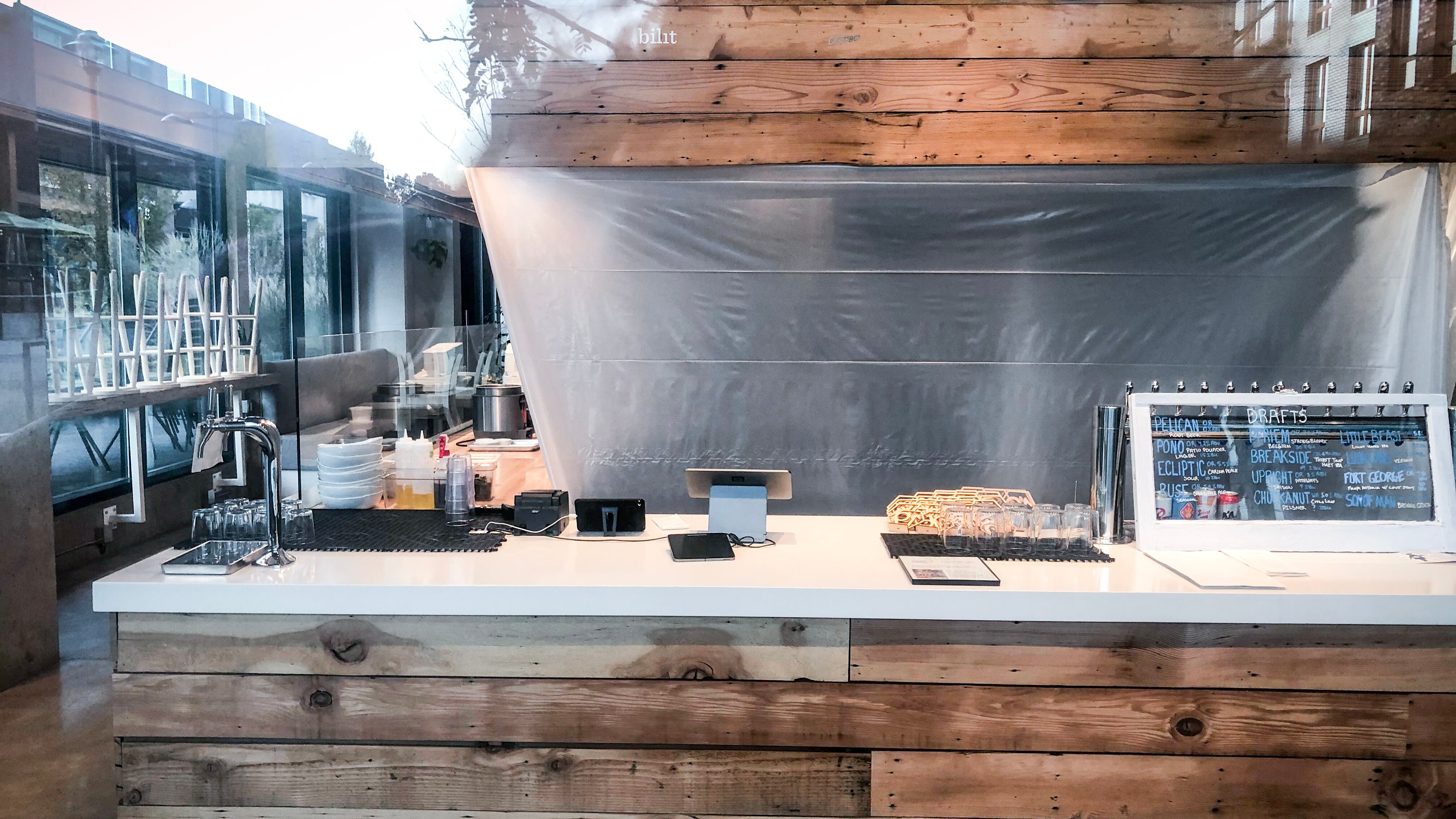On Sept. 25, David Angress smelled fire in his Northwest Portland apartment. He was alarmed but couldn't immediately determine where the smoke was coming from.
Then, he realized the source: a new restaurant nearby.
"Before calling the fire department, I looked around, and found Mama Bird had lit the grill," Angress says.
Other nearby residents also noted the smell from the wood-fired grills at Mama Bird, a health-conscious chicken restaurant in Slabtown that opened this September.
"As soon as [Mama Bird] started, the impact was immediate," says Ryan Nielson, whose apartment is just south of Mama Bird, which is located at 2145 NW Raleigh St. "I live on the sixth floor, and it's the worst on our floor. I have a cough every time I come back in from being outside, and my lungs are getting irritated from the particulate matter."
A month after opening, Mama Bird came in for a hard landing.
"Out of an abundance of caution and recognition of the sensitivity to this issue in the surrounding community, Mama Bird has decided to temporarily close down starting on Sunday, Oct. 27, while the permanent scrubber solution is installed," says Thomas DiChiara of Cairn Pacific, one of the restaurant's landlords.
An industrial scrubber removes particulate matter from smoke. DiChiara says the restaurant aims to reopen by Nov. 15. (The Oregonian first reported the closure.)
Owner Gabriel Pascuzzi noted that his restaurant had passed all necessary inspections and was following state and local restaurant regulations.
"Everything is to code. It's not like we're doing anything illegal," says Pascuzzi. "It's an issue [the residents] should have approached their building about, because it's their building's intake that is pulling the smoke."

He's right that he's following the rules. Air quality watchdogs say that's exactly the problem.
Mary Peveto, a Northwest Portland environmental activist, says Mama Bird and other wood-burning restaurants around the city are exploiting a loophole in air quality regulation.
"Our lungs don't make the same distinctions that our regulations so often do in regards to air pollution," Peveto told Multnomah County commissioners in Oct. 17 testimony. "I would love to see the county use its authority as health inspectors to conduct a survey to expand its understanding and enumerate the problem of wood cooking and to educate businesses about the hazards."
Multnomah County regulates restaurants, but only on the inside. The Oregon Department of Environmental Quality regulates industrial emissions, but not restaurants.
The county does tell homeowners not to use their fireplaces when the city's air quality is poor—as it did Nov. 2. In fact, from October through February, it is against county rules for residences to light wood stoves and fireplaces on days when air quality is poor. This county ordinance also applies to businesses, which are informed via email and social media when a burn ban is in effect.
But "wood burning for commercial and residential cooking is excluded" from the ordinance.
Peveto wants the county to end that distinction. "Mama Bird is not a one-off," she says. "There is a long history of really contentious problems with wood burning by businesses."
Health officials acknowledge wood smoke is a health hazard and one of the top sources of cancer-causing pollution in the Portland metro area.
"I love a good fire or campfire, but I work in this world, and it's a health hazard," says Dr. Erika Moseson, president of the Oregon Thoracic Society. "Around the world, indoor cooking fires are the biggest cause of chronic obstructive pulmonary disease [COPD] and emphysema."
But county officials have not yet taken action. Jae Douglas, the county's director of environmental health, responded to WW's questions about expanding the rules with a statement: "At this point, our approach with restaurants is to provide them with information and advice and strategies to reduce emissions."
The conflict reveals a fissure in the civic tapestry. Portlanders love to eat food cooked in wood-fired ovens. But living next to them? That's another story.
Before Mama Bird temporarily shuttered, the complaints of at least four nearby residents ranged from physical symptoms, such as watering eyes and persistent cough, to hallways that smelled like smoke.
At least 50 restaurants in Portland use wood-fired grills or ovens. They include some of the best-known and most celebrated dining rooms in the city: Ken's Artisan Pizza, Ned Ludd, Nostrana and Podnah's Pit.
The county doesn't track how many of those restaurants have installed industrial scrubbers. (Its records show no complaints in the past year about restaurant smoke—except multiple complaints about Mama Bird.)

The cost of such an addition is substantial. DiChiara, the Slabtown landlord, says Mama Bird's scrubber cost $60,000 for the machine alone, and more than $100,000 once installation and labor costs are tallied. Pascuzzi says that should residents succeed in getting the county to overturn the ordinance, the effects could be sweeping.
"There are a lot of employees that depend on these restaurants," says Pascuzzi. "I wish people would think about that when they get up in arms."
Angress, the Slabtown resident, says he overcame his alarm about the smoky air and ate at Mama Bird shortly after its opening.
"I thought the chicken was good, but my clothes also smelled like chicken by the time I left," Angress says. "That can't be healthy."
